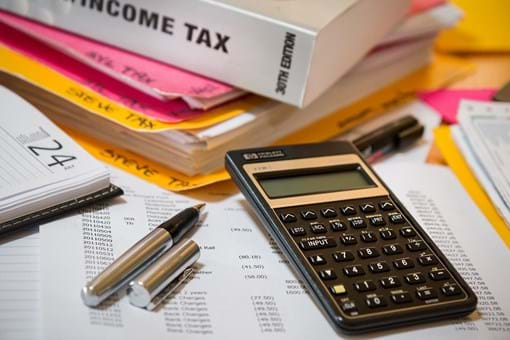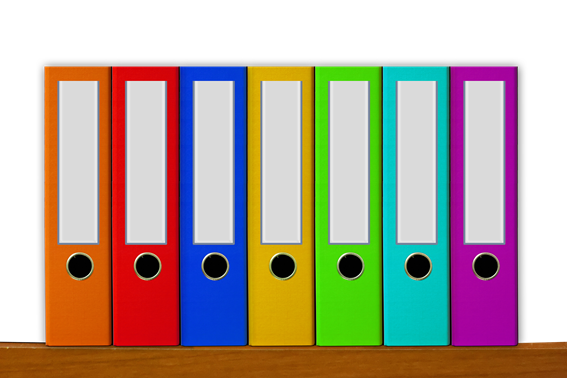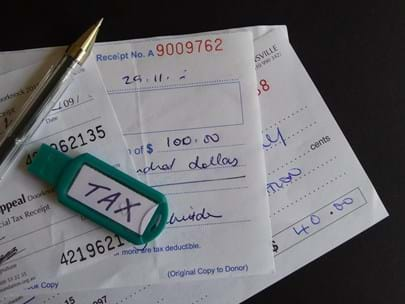The good news is the EOFY sales have begun. Time to stock up on clothes and other seasonal merchandise usually discounted this time of year. The trick is to only buy what you actually need to ensure you are saving money. This time of year will see predominantly summer stock on sale so you can be well prepared for the warmer months ahead. The bad news? It is getting cold…and it’s time to get your tax sorted.
If you’re lucky, sorting your tax means finding the shoebox under your bed (or the folder on your desk or laptop) and going through all the receipts you have collected over the past 12 months. If you’re not so lucky it means trailing through your car, bags, drawers, dog baskets and pockets for any remnant receipts you may have lurking around. Not so much fun and also not as likely to reap as big a tax return...

Tax returns cover a financial year, with this year’s financial year beginning July 1 2021 and ending on June 30 this year. You have until October 31 to submit your return if you’re doing it yourself or until May next year if you have an accountant. Nearly everyone who works will need to lodge a tax return each year you earn over the tax-free threshold. If you have had tax deducted from any payment you received over this financial year, be it wages or government payments, then legally you need to complete a tax return. If you don’t lodge one, unfortunately, you risk being fined.
If you have just one job with little or no receipts to claim then the process is very straightforward, and you can do your tax return yourself. Doing an individual tax return is a matter of filling out the online form and submitting it. You can even use the ATO app to access and manage your tax and super on the go.
If you run a small business or if you have multiple jobs or various claims to make then you may find it helpful to employ an accountant to assist you with your tax return.
Here are some tips to help you to maximise your tax return.
Get your tax tidied:
If you don’t already have a basic filing system for your receipts, this is your reminder to get a system in place so that next financial year you will be more organised. All you really need is a shoebox or a simple filing system. Some people like to punch holes in their receipts and put them in a folder in some kind of order. Other people like to scan everything and keep it on their computer or photograph and file them on their phone. At the very least keep all your receipts in the same place to save you the hassle of trying to find that all important receipt last minute.

If you run your own small business or have an ABN you will probably find you need to go beyond the box method and list all your business expenses and earnings for the month. Keep like-receipts and invoices together (i.e. keep your travel expenses in one envelope, and your stationery expenses in another etc.). Find a system that works for you and stick to it. There are online accounting systems such as Quickbooks and Xero for those more technically savvy and who like to use digital systems.
Take advantage of tax breaks and rebates
You might need to speak to an accountant to find out what tax breaks apply to your unique financial situation but there are some great opportunities to lower your taxable income depending on your salary. These include the 30% private health insurance rebate, superannuation contribution rebates (salary thresholds apply as do limits to the amount you can contribute), Low and Middle Income Tax Offsets (LMITO), as well as small business rebates and tax offsets depending on circumstances.
You can usually claim the tax-free threshold on the first $18,200 of income you earn in the income year. This is called the tax-free threshold. If you're an Australian resident for tax purposes you can claim the tax-free threshold each income year. So if you have paid tax but have not earned over $18,200 over the financial year you should get a tax refund.
Another way to reduce your taxable income is by salary sacrificing into your super or salary sacrificing purchases such as laptops and mobile phones (speak to your employer to see if this might be an option).
Claim as many purchases as you can:
Sort through any receipts you do have from this financial year (from July 1, 2021 to the end of June 2022). Then sort into types of expenses – types of expenses may include travel, office supplies, furthering education or uniform expenses.
Anyone who has spent time working from home due to office closures over the past 12 months is allowed to claim a range of additional expenses. Some working from home deductions you may be eligible to claim include air-conditioning, phone and internet services, office supplies such as printer ink, stationery paper and office equipment or furniture such as desk, chair, computer etc.
 Different types of jobs incur different types of expenditure, but it is definitely worth investigating what you might be able to claim. If you own a small business you are more likely to have a greater range of items that are able to be claimed, including study, travel and accommodation if you can prove it is work related. If you are employed you have a little less scope to claim, but things from your mobile to laundry expenses might be claimable. If you go to an accountant or donate to charities these costs are always tax deductible.
Different types of jobs incur different types of expenditure, but it is definitely worth investigating what you might be able to claim. If you own a small business you are more likely to have a greater range of items that are able to be claimed, including study, travel and accommodation if you can prove it is work related. If you are employed you have a little less scope to claim, but things from your mobile to laundry expenses might be claimable. If you go to an accountant or donate to charities these costs are always tax deductible.
You can only claim legitimate expenses, and only if they are applicable for your line of work or industry. You need to keep your tax records and receipts for five years. However, the ATO is ok with digital copies of receipts. To find out which deductions might apply to you speak to an accountant or visit the ATO website here. Learn which deductions apply to your occupation and keep these in mind for the new financial year to maximise next year's return.
Chat to your employer
If your employer will pay outright for any work related expenses rather than you trying to claim them at the end of the financial year, this guarantees you will get a 100% tax deduction as you’re not paying for it in the first place. Often employers tee up chats around this time of year to discuss performance and pay. When it comes time to negotiate pay with your employer, if you can’t wrangle a pay rise, you may still be able to get some expenses covered. It’s worth asking to have a percentage of your travel or phone costs covered, or perhaps even having your employer pay for a course which will give you new skills to use in the workplace.
Get ahead for next financial year
Use your tax return to pay off any debts you might have incurred this financial year to put yourself in a better place financially for the new financial year. While it might be tempting to blow it all, try to commit to paying at least some of your debt to help reduce interest payments and start afresh.
Set yourself a budget
Set a savings and earnings goal for the next twelve months and think about setting up a budgeting plan to stay out of debt and build up your savings. Take this opportunity to reassess any non- essential expenses. Cancel subscriptions you don’t use, shop around for a better mobile phone deal, research deals on electricity suppliers and private health cover and ensure you’re not paying more than you should.
Start the new financial year, beginning July 1, with clear goals for the year ahead, a tidy office and an organised tax filing system. This will give you the best start and ensure the next 12 months of paperwork will be simple, making this time next year a breeze!

Alison Gallagher is a freelance writer, resourcefulness expert and and entrepreneur. She has been featured in various publications including Stellar Magazine, Australian Health and Fitness Magazine, and Cleo Magazine. Alison is particularly passionate about sharing practical tips on how to live simply, sustainably and seasonally.






